Ruth Huizinga, PhD

Effect of IVIg on the B-cell receptor repertoire of patients with the Guillain-Barré syndrome
Intravenous immunoglobulin (IVIg) is the first-choice treatment for immune-mediated diseases of the peripheral nerve, notably the Guillain-Barré syndrome (GBS). Still, the response to IVIg treatment is highly variable and the working mechanism of IVIg is poorly understood. We, and others, have shown that IVIg has an effect on white blood cells, particularly B cells, in the peripheral blood of patients with GBS. This effect was previously described to correlate with clinical outcome. In this project we aim to investigate the B-cell response to IVIg in detail by using novel molecular techniques. We will use isolated white blood cells from patients with GBS, before and after IVIg treatment, and amplify genes or transcripts that code for antibodies, which are highly diverse effector molecules of B cells. By comparing the DNA sequences of the antibodies we aim to investigate whether the B-cell response to IVIg is similar between patients, determine the origin of the B-cell response and identify molecular patterns related to clinical outcome. By investigating the molecular mechanism of the B-cell response to IVIg we may identify new strategies to help improving the efficacy of IVIg. This will not only be important for patients with GBS, but also for other patients with immune-mediated diseases of the peripheral nerve.
Curriculum Vitae
Ruth Huizinga studied medical biology at the Vrije Universiteit in Amsterdam, The Netherlands, where she developed a strong interest in neuroimmunology. Her PhD-research, performed in the group of Professor Sandra Amor, focused on autoimmunity to neuronal antigens in multiple sclerosis.
After obtaining her degree in 2008, she joined the group of Professor Bart Jacobs at the department of Immunology (Erasmus MC, Rotterdam, The Netherlands) to work as post-doctoral researcher on the pathogenesis of the Guillain-Barré syndrome (GBS). She investigated the mechanism and extent of dendritic cell activation by Campylobacter jejuni in healthy persons and patients with GBS.
As visiting scientist in the laboratory of Professor Hugh Willison (University of Glasgow, Scotland, UK), she further studied the development of antibodies to glycolipids in mice.
In 2014, back at the Erasmus MC in Rotterdam, she obtained the Benson Clinical Research Fellowship (from the GBS/CIDP Foundation International) to elucidate whether innate responsiveness to microbial triggers is predisposing to the development of GBS. In 2015 she was awarded the AK Asbury prize for best oral presentation at the biennial meeting of the Peripheral Nerve Society (Quebec, Canada) for her work on innate immunity to Campylobacter jejuni in GBS.
Over time, she established a unique collection of leukocytes from patients with immune-mediated neuropathies that will be used to study the pathogenesis and to identify cellular biomarkers that predict the response to immunomodulatory treatment.

